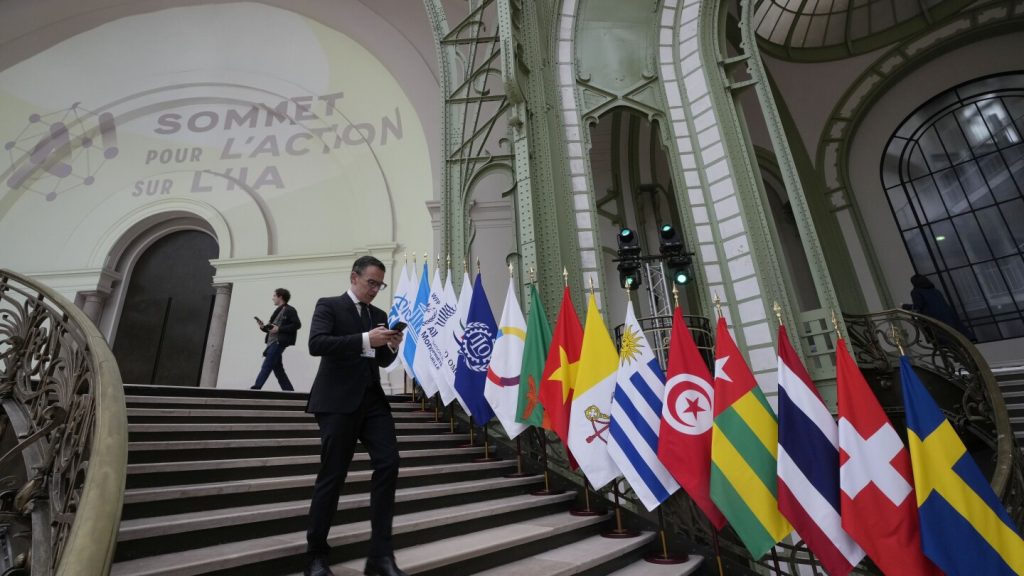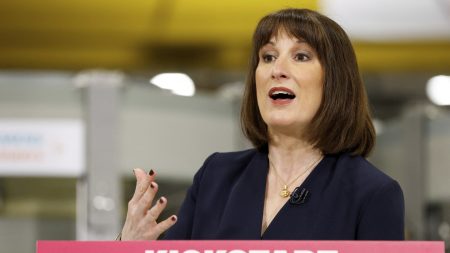JD Vance Makes His Global Debut as U.S. Vice President at the Paris AI Summit
JD Vance, the 40-year-old U.S. Vice President, stepped onto the world stage this week, marking his first major appearance on the global scene. Vance, who transitioned from being a freshman senator to joining Donald Trump’s ticket, used the high-profile AI summit in Paris and the Munich Security Conference as platforms to amplify Trump’s assertive new approach to diplomacy. His primary focus in Paris was to counter European efforts to impose stricter regulations on artificial intelligence (AI) while advocating for a more open and innovation-driven strategy. The AI summit brought together world leaders, tech executives, and policymakers to discuss the profound impact of AI on global security, economics, and governance. Notably, Chinese Vice Premier Zhang Guoqing’s presence highlighted Beijing’s keen interest in shaping global AI standards.
French President Emmanuel Macron emphasized the urgency of the summit, calling it a “wakeup call” for Europe to become more competitive in a tech landscape dominated by the U.S. and China. Macron also called for streamlining regulations in France and the European Union to accelerate AI advancements, particularly in sectors like healthcare, mobility, and energy. “We are most of the time too slow,” Macron admitted, stressing the need for Europe to resynchronize with the rest of the world. The summit underscored a three-way race for AI supremacy, with Europe focusing on regulation and investment, China expanding access through state-backed tech giants, and the U.S., under Trump, prioritizing a hands-off approach.
Vance’s Diplomatic Agenda: AI and Geopolitics
During his time in Paris, Vance signaled his intent to use the AI summit as a platform for candid discussions with global leaders on AI and geopolitics. He emphasized the potential for these conversations to address pressing issues, such as bringing the Russia-Ukraine conflict to a close. Vance told Breitbart News, “I think there’s a lot that some of the leaders who are present at the AI summit could do to, frankly — bring the Russia-Ukraine conflict to a close, help us diplomatically there.” His schedule included separate meetings with Indian Prime Minister Narendra Modi and European Commission President Ursula von der Leyen, according to a source familiar with the planning.
On Tuesday, Vance was set to have a working lunch with Macron to discuss Ukraine and the Middle East. Vance, like Trump, has questioned U.S. spending on Ukraine and the strategy of isolating Russian President Vladimir Putin. Trump has vowed to end the fighting within six months of taking office. Following Paris, Vance’s diplomatic tour continued in Munich, where he attended the Munich Security Conference. There, he aimed to press European allies to increase their commitments to NATO and Ukraine and potentially meet with Ukrainian President Volodymyr Zelenskyy. Vance also criticized what he described as an “evil trend” in Europe toward censorship, arguing that free and open debate is essential.
The Push for AI Advancements and Global Collaboration
The Paris AI summit represented a landmark moment in the global conversation about AI, bringing together major players such as Google, Microsoft, and OpenAI. Linda Griffin, Mozilla’s vice president of public policy, described the event as “the first time we’ll have had such a broad international discussion in one place on the future of AI,” calling it a “norm-setting moment.” A global public-private partnership named “Current AI” was launched to support large-scale initiatives that serve the general interest. This move reflects the growing recognition that AI governance must move beyond the control of a handful of private actors and prioritize public interest.
However, the extent to which the United States will support such initiatives remains uncertain. Nobel Prize winner Demis Hassabis, founder of Google’s DeepMind research lab, highlighted the complexities involved, from controlling AI systems to resolving geopolitical questions about regulation. Meanwhile, a small group of protesters gathered in Paris’ Bastille square, calling for a pause on advanced AI development due to concerns over catastrophic risks to humanity and its role in exacerbating climate change. Despite these concerns, negotiating strict limits on AI was not expected to be a priority for world leaders at the summit.
Macron’s Vision for France and Europe in the AI Race
French organizers aimed to use the summit to ignite major investment in Europe, positioning the region as a contender in an industry increasingly shaped by U.S.-China rivalry. Macron announced newly unveiled investments worth 109 billion euros ($113 billion) over the next five years, including significant contributions from the United Arab Emirates, Canada’s Brookfield, and the UK’s Fluidstack. He emphasized France’s unique advantage in low-carbon energy, with 75% of its electricity coming from nuclear power. “Here, there’s no need to drill,” Macron quipped, referencing Trump’s “drill baby drill” slogan. “It’s just plug baby plug.”
Macron’s pitch underscored Europe’s potential to carve out its own path in the AI race, combining robust regulation with innovation. However, the overshadowing presence of U.S.-China competition loomed large. In Beijing, Chinese Foreign Ministry spokesperson Guo Jiakun opposed efforts to restrict access to AI tools, advocating for open-source technology and equitable access to AI services. Meanwhile, in the U.S., concerns over a new AI chatbot from China-based DeepSeek prompted calls in Congress to limit its use for security reasons. Alexandra Reeve Givens of the Center for Democracy and Technology warned that the American approach must extend beyond technological competition, emphasizing the need for norms, support, and human relationships to strengthen global partnerships.
India’s Role in Shaping the Global AI Landscape
Indian Prime Minister Narendra Modi co-hosted the summit with Macron, seeking to prevent the AI sector from becoming a battleground dominated by U.S.-China rivalry. Indian Foreign Secretary Vikram Misri stressed the importance of equitable access to AI to avoid perpetuating the existing digital divide. However, the broader international discussions were overshadowed by the tensions between the U.S. and China. While Modi’s co-hosting signaled India’s ambition to play a mediating role, the summit highlighted the challenges of fostering global cooperation in an increasingly polarized world.
As the Paris AI summit concluded, the world remained at a crossroads in shaping the future of artificial intelligence. The interplay between innovation, regulation, and geopolitics will undoubtedly define the trajectory of AI in the years to come. Vance’s debut on the global stage underscored the U.S. administration’s priorities, while Macron’s investments and Modi’s co-hosting reflected the diverse strategies of other nations. ultimately, the success of the summit will depend on whether world leaders can move beyond competition and toward collaboration to ensure that AI serves the common good.








